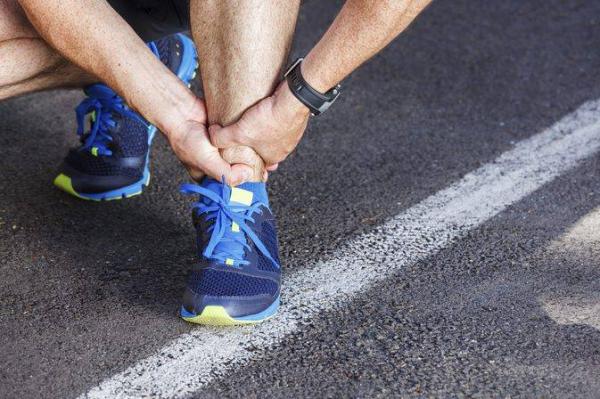Is RICE or MEAT Right for My Injury?
Don't Let A Strain or Sprain Ruin Your Summer!
Hanna Kim
Is RICE or MEAT Right for My Injury?
ÂWith more people out and about playing under the Colorado sun, it seems there’s also been an uptick in injuries. Fortunately, not all injuries are severe, but something like a first-degree sprain can still lead to the pain and discomfort that stops you from having fun.
ÂThe care you take after an injury plays a big role in how you recover. Like any other science, sports medicine has seen changes over the years, and more recent research is showing that a popular at-home treatment method, RICE, may be outdated, and for good reasons.
ÂWhat is RICE?
ÂYou’ve  probably come across RICE at some point in your life. Dr. Gabe Mirkin coined the term in 1978 as a treatment protocol for athletic injuries, and it quickly rose to be the standard because it is effective in relieving pain caused by injured tissue.
ÂRICE relieves pain, but it also reduces our body’s inflammatory reaction, which is our bodies’ natural response to an injury. Our immune system sends inflammatory cells to damaged tissue to rebuild after the injury. Below, you can see how RICE reduces inflammation, and thereby inhibits the healing process.
ÂREST – Completely rest, especially for long periods of time, can slow recovery time after an injury. Continue reading to find out why movement might be a better alternative. Â
ÂICE – Ice causes vasoconstriction, or the decrease of blood flow, which inhibits inflammation. A review in the Journal of Athletic Training found a lack of evidence that rest and ice helps with the actual treatment of soft tissue injury. Dr. Mirkin says you can still apply ice to an injury for pain relief, but for no longer than 10 minutes at a time, with a 20 minute break in between.
ÂCOMPRESSION – When joints and muscles are immobilized, we are no longer using them correctly and potentially reinforcing a new dysfunctional pattern. Blood flow that would otherwise bring the cellular materials necessary to repair damaged tissue are also restricted.
ÂELEVATION - There is not as much evidence for or against elevation of an injury. However, think of how stiff you get from staying in one position; for example, having to keep your leg propped up above heart level after an ankle sprain.
ÂDr. Mirkin has since recanted his view on the efficacy of RICE and you can now see why it may not be the best treatment method. As always, if you get injured, immediately stop your activity and get the proper medical attention you need.
ÂWhat is MEAT?
ÂMEAT is a newer mnemonic device you might want to think about using for future injuries. You may notice MEAT seems to be the opposite of RICE.
ÂMOVEMENT – You want to mobilize the muscle or joint as soon after the injury as possible, but without increasing pain. Early movement stimulates blood flow and helps reduce the formation of poorly aligned scar tissue. A 2004 review in the Journal of Family Practice showed early mobilization has benefits, including earlier return to work, decreased pain, swelling, and stiffness, and an ability to maintain greater range of joint motion.
ÂEXCERISE – Once you start feeling better, you can ease back into your exercise or sport. Start slow, and listen to your body and your doctor.
ÂANALGESICS – Instead of anti-inflammatory medications such as cortisone and ibuprofen, and ice, try natural pain relievers such as arnica or CBD’s.
ÂTREATMENTS – Additional treatments such as massage and physical therapy can help you get back into tip-top shape.
*MEAT is paleo, vegan, and gluten free!
ÂPair MEAT with MASSAGE!
ÂOnce your injury is past the acute healing stage, getting a massage is a fantastic way to reduce your recovery time. Massage increases local blood flow and relaxes tight muscles. It also helps break up scar tissue limiting range of movement.
ÂEspecially with severe injuries, we recommend getting cleared by your doctor before coming in for a session.
Â
LoDo Chair Massage
Get A Quote Today Or Give Us A Call!
888.673.2535
www.lodochairmassage.com
LoDo Chair Massage keeps it simple...Call or email us with your needs. Get a quote for on-site chair massage right away. Get on our calendar. Relax.Â
LoDo Chair Massage keeps it effective...With participation rates for chair massage ranging from 80-100% and scores of 5 star reviews, your event will be a success.
LoDo Chair Massage keeps it reliable...Our team of chair massage therapists therapists are vetted specifically for reliability, and our management team is available to help if emergencies arise. You can count on us!
Let us do what we do best- help you and your team relax.Â
Â
Â
Â
